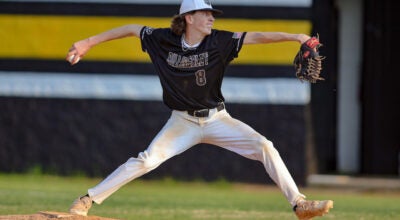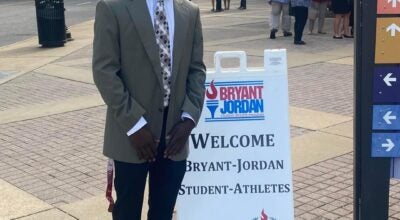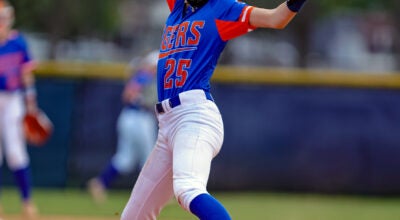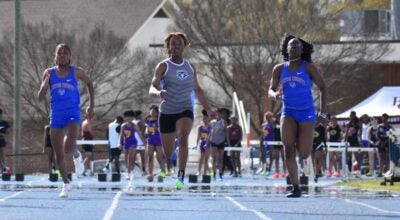Sayonara! US ousted by Japan in WBC semifinals
Published 7:33 am Monday, March 23, 2009
LOS ANGELES — For the second time in three years, the United States was beaten at its own game on its own turf.
Maybe baseball just ain’t America’s sport anymore.
Daisuke Matsuzaka remained undefeated in the World Baseball Classic and defending champion Japan topped Team USA 9-4 in the semifinals at Dodger Stadium on Sunday night.
“Can you believe this? Look at the score. I feel so bad about this,” Tom Lasorda, Hall of Fame manager and WBC global ambassador, said from his seat behind home plate.
“I’m very, very disappointed. We had high hopes. This is the second time we were supposed to win. We taught these people the game.”
Instead, Japan gave the lessons on American soil.
Matsuzaka sent his country into Monday night’s title game against South Korea, a 10-2 winner over Venezuela in Saturday’s semifinal. Japan won the inaugural tournament in 2006, defeating Cuba in the final.
Akinori Iwamura’s RBI triple was the key hit in a five-run fourth inning against starter Roy Oswalt, and the U.S. absorbed its first loss to Japan in major international play since the 2005 World Cup. The Americans had won four in a row, including an 8-4 victory in the bronze medal game at the Beijing Olympics.
“We didn’t play as well defensively,” U.S. manager Davey Johnson said. “We made it a ballgame through seven innings, and made some mistakes, walked the leadoff hitter in the eighth, and that’s not the way you win ballgames.”
The WBC has hardly been a showcase for the United States, despite a roster loaded with major league stars.
Three years ago, the Americans were eliminated 2-1 by Mexico in the second round of the tournament after beating Japan 4-3 during pool play in Anaheim.
“I have no thoughts whatsoever that I have surpassed them,” Japan manager Tatsunori Hara said through a translator. “But the American baseball team came to recognize the Japanese team. To some extent, that is something I believe is the result of this.”
The Americans came into their first final four appearance hobbled by injuries.
During the second round in Miami, they lost second baseman Dustin Pedroia (left side), first baseman Kevin Youkilis (sprained left ankle, left Achilles’ tendinitis) and reliever Matt Lindstrom (strained right rotator cuff). Chipper Jones (right side) was replaced for the semifinal by Evan Longoria.
The Americans were the visiting team on a cold, blustery night in Los Angeles, having earned the designation by finishing second in Group 2. Japan won Group 1, with South Korea coming in second.
“Some of our pitchers aren’t as far along as some of the Japanese pitchers,” said Johnson, who played in Japan in the mid-1970s. “When I was in Japan, spring training started January 1. It’s a lot of practice. It does give them a head start when you play them in March, but I thought our guys played well.”
Matsuzaka allowed two runs and five hits in 4 2-3 innings. The Boston Red Sox right-hander struck out four and walked three before being pulled when he reached 98 pitches, two shy of the 100-limit for the tournament’s final two rounds.
Matsuzaka, who pitched six shutout innings against Cuba last Sunday, is 3-0 in this year’s WBC, having allowed 14 hits and four runs in 14 2-3 innings. He went 3-0 and was selected tournament MVP three years ago.
“Compared to the Cuba game, I believe that the control of the slider was not as good,” catcher Kenji Johjima said. “What I think is good about him is if one ball is not good, one pitch, even when that ball is not good, he would not give up.”
Oswalt got tagged, giving up six runs and six hits in 3 2-3 innings. He walked four and struck out one. The Houston Astros right-hander was 1-1 in three WBC starts, allowing nine runs, seven earned, in 11 1-3 innings.
“I thought he was throwing the ball all right,” Johnson said. “I tried to get (John) Grabow up. I didn’t think it was going to take him so long. It took him longer in the cold weather to get loose. But I still thought he (Oswalt) was throwing good enough to stay in the ballgame.”
The United States took a 2-1 lead after three innings on Brian Roberts’ leadoff homer in the first and David Wright’s RBI double in the third.
Japan broke loose in the fourth, with the help of an error by Roberts at second base that made two of the runs unearned. Roberts was added to the U.S. roster before the second round, replacing Pedroia.
Atsunori Inaba and Michihiro Ogasawara opened the inning with singles and the error by Roberts allowed Japan to tie it at 2. Johjima followed with his second sacrifice fly before Iwamura tripled into the right-field corner.
Munenori Kawasaki then singled home Iwamura. One out later, Hiroyuki Nakajima hit an RBI double on a 3-0 pitch, chasing Oswalt and giving Japan a 6-2 lead.
That put the Americans in a big hole against a team that came into the semifinals having outscored its opponents 36-9 in seven games.
But the U.S. got back in the game in the eighth on a two-run double down the left-field line by Mark DeRosa off Takahiro Mahara, cutting the deficit to 6-4. Mahara avoided further damage by striking out pinch-hitter Longoria and getting Roberts to ground back to the mound.
Japan tacked on three insurance runs in the bottom half off Joel Hanrahan and Scot Shields. The first scored on shortstop Derek Jeter’s two-out throwing error. Ichiro Suzuki added an RBI single, and Nakajima had a run-scoring double that right fielder Adam Dunn appeared to lose in the lights.
Jimmy Rollins went 4-for-4 with a walk and a two-out triple in the seventh. Masahiro Tanaka struck out Wright to end the inning.
“We had a lot of fun being an underdog, knowing that we were at somewhat of a disadvantage as far as having time to prepare,” Rollins said. “It shows the support and passion these other countries have for baseball. In America, we have many sports, so our attention is at whichever sport season is going on at that time.”
The announced crowd of 43,630 — second-largest in WBC history and the most on U.S. soil — was bundled in jackets and blankets as temperatures hovered in the 50s and wind whipped the palm trees in the outfield. There were large pockets of empty seats throughout the stadium.






